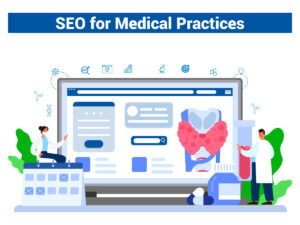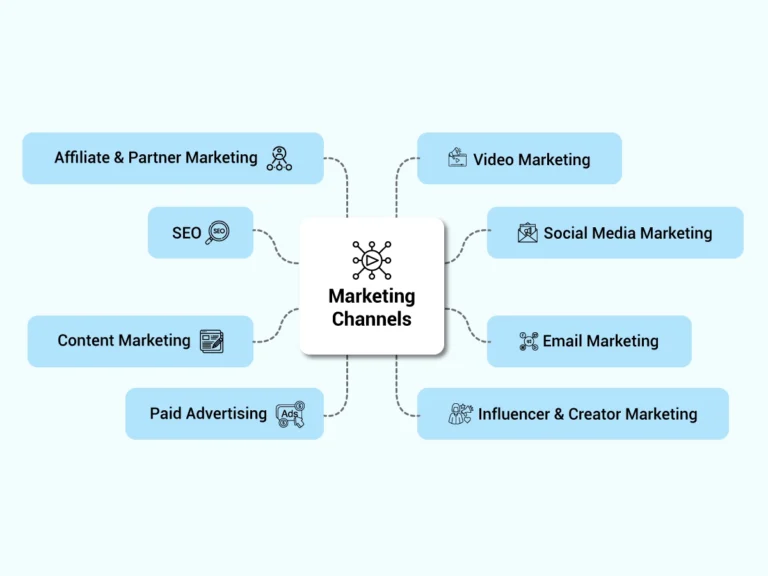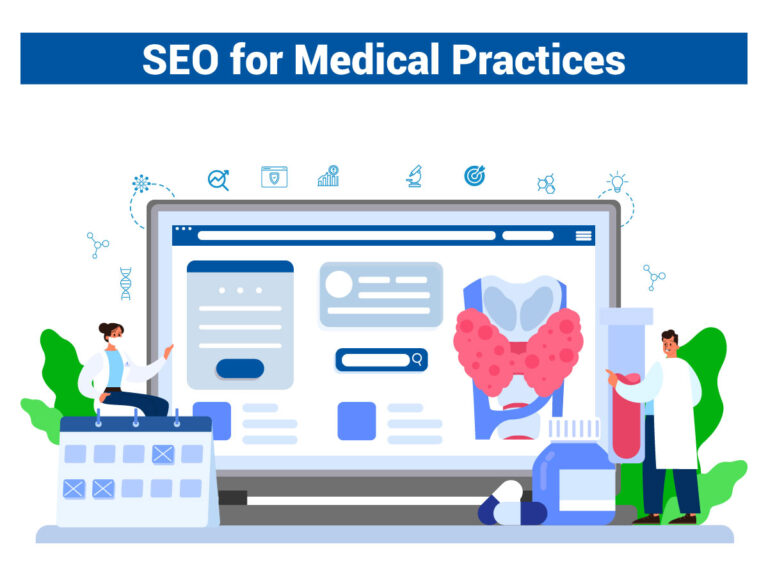In today’s digital age, having a robust online presence is crucial for any business or professional trying to reach their target audience. This rings true for law firms as well. With countless potential clients turning to search engines like Google to find legal services, SEO for law firm websites has become a must.
Search engine optimization (SEO) is the key that unlocks the doors to higher visibility and increased organic traffic. By implementing effective SEO techniques tailored specifically for law firms, you can ensure that your website ranks higher in search engine results pages (SERPs). Thus, you can attract more potential clients and ultimately drive business growth.

Does SEO Work for Lawyers?
Many lawyers wonder if SEO for Law Firm Websites is truly effective in driving meaningful results for their practice. The truth is that when done strategically and ethically, SEO can significantly impact a law firm’s online visibility and lead generation.
By optimizing their website with relevant keywords, creating high-quality content, and implementing local search strategies, lawyers can improve their chances of ranking higher in search engine results. Thus how, lawyers can reach potential clients at the right moment.
Furthermore, SEO efforts tailored specifically for legal professionals can enhance a law firm’s reputation and credibility. And the firm positions it as an authoritative resource within its practice areas.
Why is SEO for Lawyers So Important?
Why should law firms invest time and resources in optimizing their websites? The answer lies in understanding the importance of ranking higher in organic search results. Studies have shown that users tend to trust and click on organic listings more than paid advertisements or other forms of online promotion.
By appearing at the top of relevant SERPs, you’ll not only gain credibility but also increase brand awareness among your target audience. Additionally, ranking higher organically can lead to cost savings compared to constantly relying on paid ads.
Now it’s time to delve into the various strategies and best practices of SEO for law firm websites. So, you can unlock the full potential of your online presence.

Law Firm SEO Ranking Factor
Here you go with key ranking factors when you target to optimize your Law firm’s online presence.
Content Optimization Techniques
Creating unique and useful content is a crucial aspect of SEO for any business, and law firm websites are no different. To attract potential clients, your content should be informative, engaging, and relevant to the legal needs of the people.
Start by conducting thorough keyword research to identify the terms and phrases potential clients use to search for legal services. Use these keywords strategically throughout your website’s content to improve its visibility in search engine results pages (SERPs). You can do it manually, and also, there are numerous tools to shave your labor and save you energy and time.
In addition to keyword optimization, it’s essential to focus on providing value through your content. Consider common questions or concerns that potential clients may have and address them in blog posts, articles, FAQs, or case studies on your website. You can offer valuable insights and practical advice related to their legal issues or areas of interest. This is the best way to establish you as an authority in the field.
Another essential aspect of content optimization is implementing on-page elements effectively. Ensure each page has a unique title tag that accurately describes its contents while incorporating relevant keywords naturally. Similarly, craft compelling meta descriptions that summarize what the page offers and entice users to click through from SERPs.
Backlinks and Off-Page Citations
Building a strong backlink profile is crucial for improving the visibility and authority of your law firm’s website. Backlinks, also known as inbound links, are links from other websites that direct traffic to your site. Search engines view backlinks as endorsements or votes of confidence. This is a strong indication of the relevance and credibility of your content.
To develop a robust backlink profile for your law firm website, focus on obtaining high-quality links from reputable sources. Seek opportunities to collaborate with legal organizations or industry publications by contributing guest blog posts. Writing informative articles relevant to the legal community not only helps establish you as an authoritative figure but also provides an opportunity to include a link back to your website.

Technical SEO
In the world of SEO, technical SEO plays a crucial role in both user experience and search engine rankings. Here, the key components of technical SEO include structured data, page-load speed, and responsive site design.
A slow-loading website can significantly hinder your chances of attracting and retaining potential clients. Studies have shown that users expect websites to load within two seconds or less, and any delay beyond that can result in higher bounce rates. To improve your law firm’s website loading speed, there are several steps you can take.
First, prioritize optimizing images by compressing their file sizes without compromising quality. Large image files are one of the main culprits behind slow-loading pages.
Then, minify your CSS and JavaScript files to reduce their size and eliminate unnecessary code that may slow down your site.
Finally, consider leveraging browser caching to store static resources on a visitor’s device so they don’t have to reload whenever they access your site.
With mobile usage surpassing desktop browsing in recent years, having a mobile-friendly website is no longer an option—it’s a necessity.
A responsive design ensures that your website adapts seamlessly across various devices, such as smartphones, tablets, and laptops. Thus, you can provide an optimal viewing experience regardless of screen size or orientation. However, ensure that text remains easily readable without zooming in or out while images resize appropriately for different screens.
Remember, Google has implemented Mobile-First indexing, which means it primarily uses the mobile version of webpages for ranking purposes.

How to Implement SEO for Lawyers
Effective SEO for Law Firm Websites can help lawyers rank higher in SERPs, increase visibility, and drive more organic traffic to their sites. Here are some steps to implement law firm SEO:
1. Identify Keywords
Identifying the right keywords is a critical step in implementing SEO for lawyers. It requires a deep understanding of the legal industry and the specific needs of potential clients. When selecting keywords, it’s essential to consider the most common search terms and long-tail keywords that reflect niche areas of expertise.
For example, a criminal defense attorney might target keywords like “DUI lawyer near me” and more specific terms such as “federal drug crime defense attorney Los Angeles.” By identifying these targeted keywords, law firms can better align their online content with the needs and intentions of their potential clients.
Moreover, considering user intent is crucial when identifying keywords for legal services. Understanding what a person is looking for when they search online can help lawyers tailor their content to address those needs directly. Furthermore, leveraging location-based keywords can be especially powerful for local law firms seeking to attract clients within their geographic area.

2. Create Fresh Content
Creating fresh content is crucial for any law firm looking to implement a successful SEO strategy. It’s not enough to have a static website with basic information about the firm and its services. Regularly publishing new, high-quality content keeps your website relevant and exciting for visitors. Search engines also signal that your site is active and valuable.
One way to create fresh content is by regularly updating your blog with articles that provide valuable insights into legal topics. These should be topics that are relevant to your target audience. They could include analysis of recent court cases, legal developments, or even commonly asked questions in the field of law. Besides, consider creating multimedia content such as videos, infographics, or podcasts to keep your audience engaged and attract more traffic to your website.
By consistently creating fresh, informative content tailored to the interests of your target audience, you’ll not only enhance your SEO efforts but also build trust with potential clients who are seeking reliable legal expertise.
3. Titles, Subheadings and Headlines (H2 or H3)
Titles, subheadings, and headlines play a crucial role in optimizing a lawyer’s website or any website for search engines. When creating these elements, it’s important to include relevant keywords that potential clients might use when searching for legal services online.
Moreover, using descriptive and engaging language in titles and subheadings can increase the likelihood of capturing the reader’s attention. And this will encourage them to delve deeper into the content.
Incorporating location-based keywords in titles and subheadings can be particularly beneficial for lawyers targeting local clientele. By including the city or region in these elements, lawyers can improve their chances of appearing in local search results, making it easier for potential clients to find their services. It’s also essential to structure headlines using H2 or H3 tags to create a hierarchical organization. In fact, it is easily understood by both users and search engine crawlers.

4. Reviews/Google Business Profile
To implement SEO for lawyers, you must pay attention to the importance of Google Business Profile reviews. These days, potential clients heavily rely on reviews to make informed decisions about legal services. A strong presence on Google Business Profile with positive thoughts can significantly improve a law firm’s online visibility and credibility. It also plays a crucial role in local SEO, as positive thoughts can lead to higher rankings in local search results.
However, more than simply accumulating numerous positive reviews may be required. Responding to these reviews is equally vital as it shows potential clients that the law firm values feedback and cares about client satisfaction.
Hire a Law Firm SEO Expert
Hiring a law firm SEO expert can revolutionize the online visibility and market dominance of your legal practice. Law firm SEO experts have a deep understanding of the legal industry. That allows them to optimize your website in every way possible and necessary.
Budget
Budgeting for law firm marketing can seem daunting, but it is essential for long-term success. A common mistake is to view marketing as an expense rather than an investment. Law firms can maximize their ROI and attract the right clients by setting a clear budget and strategically allocating resources.
It’s crucial to prioritize digital marketing efforts, such as SEO. They offer cost-effective ways to reach targeted audiences and increase visibility in a competitive legal landscape.
Remember, your budget should reflect not only your current needs but also your future objectives and growth plans. Allocating sufficient resources to SEO from the outset will set a strong foundation for achieving long-term success in online visibility and client acquisition.
How Do You Find an SEO Expert for Your Law Firm?
If you are looking for an SEO expert for your law firm, there are a few things you can do to find the right one.
First, you can start by researching online. There are many SEO companies that specialize in working with law firms and can help you improve your website’s search engine rankings. You can also ask other law firms for recommendations or referrals.
When looking for an SEO expert, it’s important to find someone who has experience working with law firms specifically. This is because law firms have unique needs when it comes to SEO, such as targeting specific keywords related to their practice areas and legal services.
Once you have a list of potential SEO experts, you should take the time to research each one. Look for reviews and testimonials from other law firms they have worked with, and check their website to see if they have experience working with law firms.
When you have narrowed down your list of potential SEO specialists, you should schedule a consultation with each one. During the consultation, you can discuss your law firm’s specific needs and goals. And the SEO expert can provide you with a plan for how they would improve your website’s search engine rankings.
With the right SEO guru, you can improve your website’s search engine rankings and attract more potential clients to your law firm.

What to Look for When Hiring an SEO Consultant?
Finding the right SEO expert for your law firm may seem like a daunting task, but with the right approach, it can be a game-changer for your online presence.
Start by looking for an SEO specialist with specific experience in the legal field. They should have a proven track record of helping law firms improve their search engine rankings and attract more targeted traffic. On its top, consider their understanding of local SEO as this is crucial for law firms targeting clients in specific geographic areas.
When you evaluate potential candidates, you solely rely on testimonials or case studies. Instead, you better try to see real-time data from their current clients to gauge their effectiveness. It’s also important to find an SEO expert who understands the unique regulatory environment that governs law firm advertising and can navigate it effectively.
Finally, look for someone who can articulate a clear strategy tailored to your firm’s goals and objectives rather than providing cookie-cutter solutions. A good fit will not only have technical expertise but also possess strong communication skills. He must be able to explain complex concepts in ways that make sense to you as a non-SEO professional.
By paying attention to these key factors, you’ll be better equipped to find the right SEO consultant who can help your law firm succeed online.
End Note
To increase visibility and attract potential clients, law firm websites need effective SEO strategies. However, SEO for law firm websites is not a one-time effort. It’s important to stay updated with the latest SEO trends and algorithms to remain competitive in the digital landscape.
The ultimate target should be to implement a comprehensive SEO strategy tailored to the unique needs of a law firm website. SEO expert can effectively position themselves for success in an increasingly competitive online market.
Frequently Asked Questions
SEO for attorneys enhances online visibility, attracts potential clients, and establishes credibility. It helps law firms rank higher in search engine results. As a result, it increases the chances of being discovered by individuals seeking legal services.
An SEO (Search Engine Optimization) professional at a law firm is responsible for optimizing the firm’s online presence. This includes improving website rankings, enhancing content for search engines, and implementing strategies to attract and convert potential clients.
Law firms’ SEO spending varies widely based on size, location, and competitiveness. Small firms may spend a few thousand dollars monthly, while larger firms in competitive markets might invest tens of thousands. The budget depends on specific goals and the complexity of the SEO strategy.
The average cost of law firm SEO per month ranges from $2,500 to $10,000 or more. Factors influencing costs include the level of competition, geographical targeting, the complexity of legal services, and the extent of SEO services provided by the agency.









